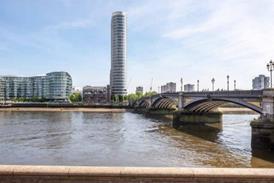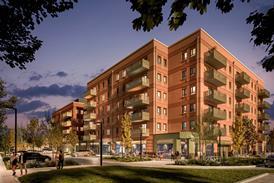Labour’s vision for a new generation of New Towns embraces properly integrated communities; beautiful places and buildings that reflect local character; the requisite transport, education and health facilities, and the provision of good quality green space. Long term strategic thinking of this kind is exactly the kind of radical approach that we need to help resolve the acute housing crisis, creating better new places that encourage healthier, happier lifestyles, writes Hugh Petter.

Over the past twenty-five years previous governments have tried to promote Ecotowns and, more recently, Garden Villages, but none have understood how complex it is to secure the delivery of such visionary ideas. They have lacked too the political focus and will to see them through.
I have worked as both urban master-planner and architect with private and local authority landowners for over twenty years on projects of this kind. I know from first-hand experience how difficult they are, not just to conceive, but to deliver.
There is the problem of assembling the land; the endless red tape and regulation that too often results in a race to the bottom in desperation just to get something done; a tax system that can punish landowners who want to retain a controlling interest in their development, and the scarcity of funding to help pump prime the significant cost of opening up development sites.
In addition, the relentless use of regulation to try and drive better outcomes has had the opposite effect. Planning risk and higher costs have driven innovative SME developers, who really know and care about their local area, out of the market, leaving a small gene-pool of larger developers who are primarily interested in maximum short-term profit delivered through repetition and minimum investment.
There is often a reluctance too from these larger players to build the non-residential uses such as shops and offices. They argue that they are of marginal value compared with the financial return that can be made from yet more housing. What is not well understood is that the provision of good shops and offices can raise sales values for the new housing nearby.
Radical change is required across many areas to achieve Labour’s bold vision to build a new generation of New Towns
Recent Government policy has obsessed about the carbon performance of individual buildings but is silent on the importance of creating new places where we can live low carbon lives. If we just go on just building endless housing estates in and around existing settlements where the car is needed for nearly every activity, we compound a toxic legacy for future generations.
Long term value must be husbanded; it cannot be created overnight. Development that is well conceived and meets local need can create wealth, opportunity and social support for an integrated community: done properly, it can and should be popular. Surely, we would rather walk or cycle from our home to a shop, to school and to the office?
It’s about quality of life; quality of place, and about how much carbon we consume. With new development we have one chance to get it right: we need to find new ways to untie the knots we have created for ourselves over the past 70 years and create once more the kinds of place that our ancestors did so successfully.
Radical change is required across many areas to achieve Labour’s bold vision to build a new generation of New Towns. Will a strong new government have both the political will and the necessary focus to see it through and to get the job done properly? The chances of success, seemingly, are better than they have been for a long time.
>> Also read: Big names warn Labour not to ‘fall for’ traditional housing design trend
>> Also read: Strong rhetoric on planning but no surprises as Keir Starmer launches Labour manifesto
Postscript
Hugh Petter is a director of ADAM Architecture
















No comments yet